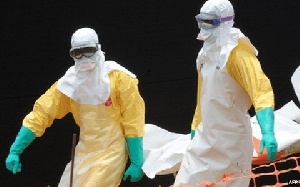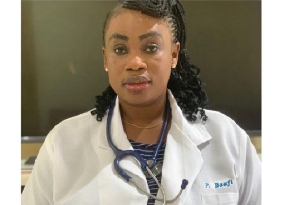General News of Sunday, 14 September 2014
Source: GNA
Ebola situation in Senegal remains stable - WHO
The World Health Organisation (WHO) says the situation in Senegal, which confirmed its first case of the Ebola disease on August 29, remains stable.
A statement issued by Fadéla Chaib, WHO Communications Officer and copied to the Ghana News Agency on Friday said, to date, 67 close contacts of the initial case had been identified and monitored twice daily.
It said two of those contacts who developed symptoms were tested for Ebola, and the results were negative, stating that an additional three suspected cases across the country were also tested, with negative results.
It said starting from August 29; 42 days twice the maximum incubation period must pass with good surveillance in place and no additional cases reported before WHO can declare Senegal as transmission-free.
“However, intense virus transmission in other countries within the sub-region creates a high risk that Senegal will experience additional introduction of Ebola cases,” the statement warned.
It said the investigation in Senegal benefitted from the presence of an Institut Pasteur laboratory in Dakar, where the initial case was identified, adding that this WHO-approved collaborating centre had excellent facilities and staff.
The statement said work undertaken by the Ministry of Health had been supported from the start by two senior WHO epidemiologists, senior staff from Doctors without Borders; and a team from the US Centres for Disease Control and Prevention.
It said all had extensive experience responding to previous outbreaks of the Ebola viral disease and the related Marburg haemorrhagic fever.
The statement said optimism about the further evolution of the outbreak in Senegal was justified but must be tempered with several cautions and reservations.
In every outbreak investigation, doubts remained about whether all contacts had been identified, it said.
According to the statement, aggressive efforts to identify additional contacts continues, aiming to ensure that no one had been missed.
It said as elsewhere, the investigation and response teams faced difficulties in keeping close contacts in isolation for the 21-day monitoring period.
The statement said contacts had remained in their homes, usually with their families, where they were checked twice daily for symptoms and tested if symptoms developed.
Some contacts have resisted monitoring, but none has been lost to follow-up, it said, declaring that although Senegal had banned all flights from other affected countries, road travellers from Guinea and elsewhere could cross the country’s porous borders.
WHO has repeatedly advised countries not to issue travel bans, which are ineffective and needlessly disruptive.
The statement said the history of Senegal’s initial case, who arrived in Dakar by road on August 20, reveals multiple opportunities for high-risk exposure.
It said continued high-level vigilance was essential; the risk of similar imported cases remained high.
“Fortunately, the initial case has now fully recovered; his last two blood samples have tested negative for Ebola virus.
“He will be released soon from hospital, raising questions about his reintegration into a social situation characterized by high yet irrational fear and widespread misinformation about the risk of Ebola transmission for the general population,” the statement said.
It said scientists did not fully understand why some Ebola patients recovered and others succumbed.
Prior to the current outbreak, Ebola was considered a rare disease and clinical information was limited.
Some anecdotal case reports from the current outbreak in West Africa suggest that age and the presence of comorbidities are associated with a poor prognosis.
The statement said to support the global response to the current outbreak in West Africa, Senegal had agreed to open a humanitarian corridor to facilitate the transport and delivery of international personnel and supplies to affected countries.











